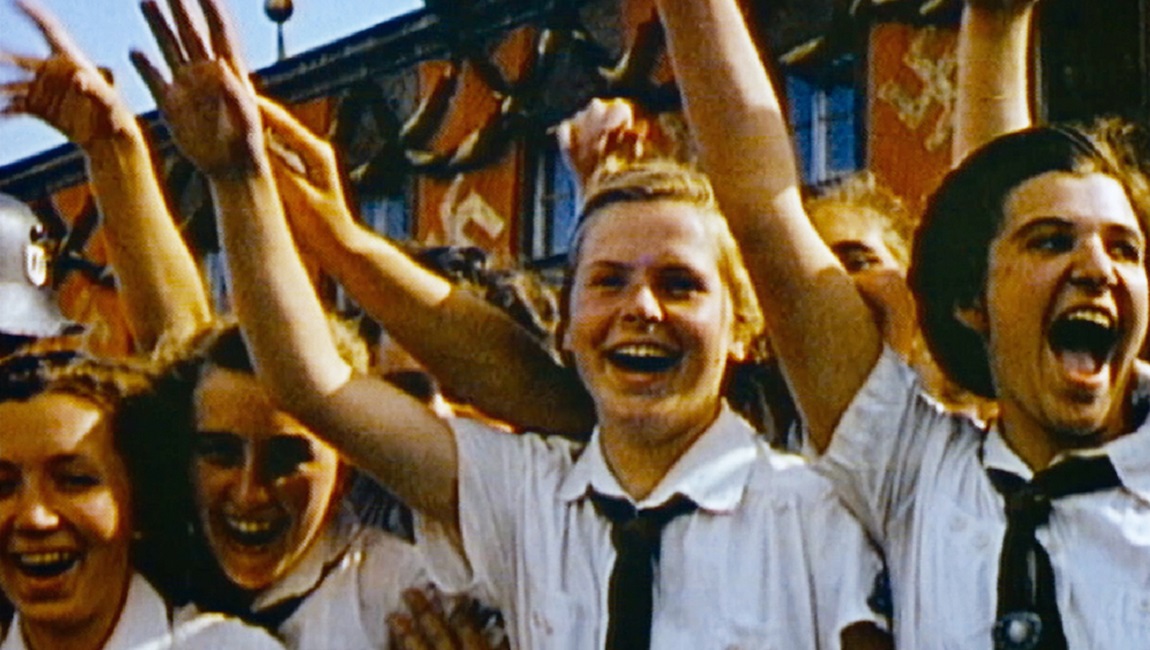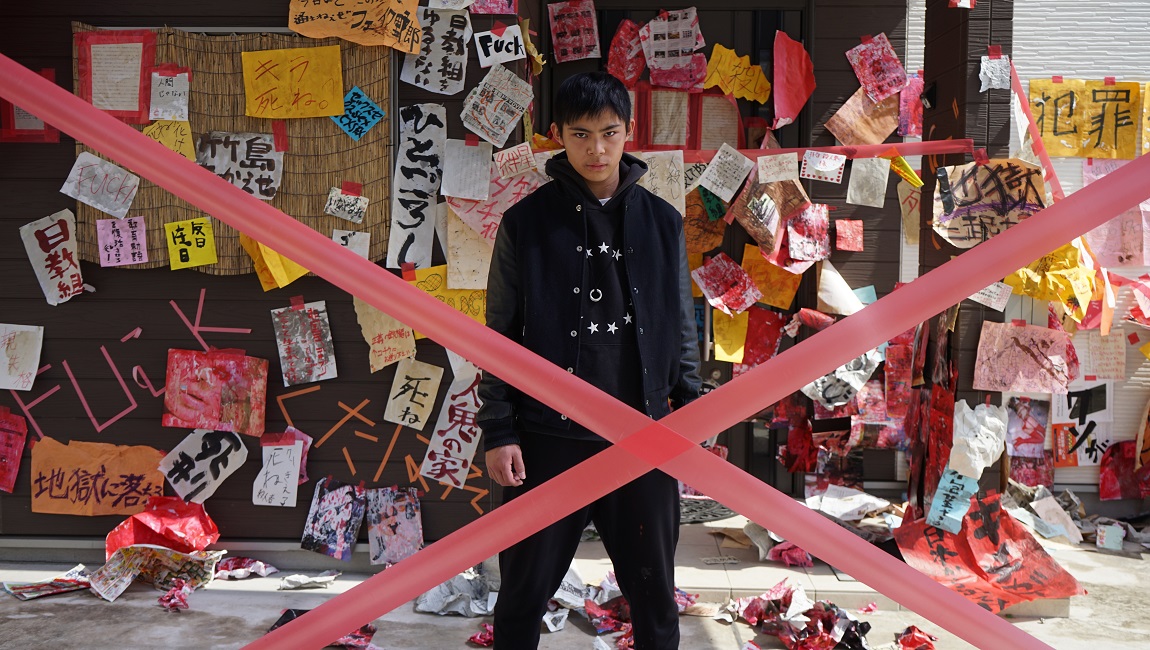Even for those who haven’t seen Alena Lodkina’s first feature, 2017’s Strange Colours, given the quality of her new film, Petrol, it should be abundantly clear that she’s a major talent. Ostensibly a coming-of-age tale about an introverted young woman searching for the unknown and the otherworldly, Lodkina’s penchant for upending narrative conventions and gleeful indulgence in all manner of the fantastique makes for a uniquely invigorating experience.
Eva (Nathalie Morris) is a film student working on her thesis project, a portrait of an elderly woman who she helps care for. When she’s not at school or working, she spends time with her mother, a Russian immigrant (Lodkina, like Eva, is Russian-born but raised in Melbourne). The film begins with Eva scouring a rocky beach with sound equipment, recording ambient noises of crashing waves and billowing winds. She stumbles upon a small group of people who appear to making their own film, and spies Mia (Hannah Lynch), a strikingly attractive woman adorned in a tight red body suit and bloody vampire fangs. Call it fate or mere coincidence, but several nights later Eva sees Mia walking with a young man down alleyways en route to a house party. Mia drops a necklace, which Eva recovers. Eva continues to follow the couple and hesitantly enters the gathering to return the necklace to Mia. Grateful for the good deed, Mia offers Eva a drink, and the two instantly hit it off. The remainder of the film charts this tumultuous friendship — the quiet, demure Eva and the outgoing but erratic Mia, as they grow closer and then begin to chafe against each other’s neuroses.
There’s more than a dash of Rivette in this scenario, not only in the attention to female camaraderie a la Celine and Julie, but also in Lodkina’s refusal to differentiate between playacting and “reality.” In other words, the seemingly realist scenario, which follows the rules of traditional narrative cinema, is constantly interrupted and intruded upon by magical flights of fancy that rupture the diegesis. Mia snaps her fingers, and food instantly appears, arranged for an afternoon picnic, while the women change outfits literally in the blink of an eye. Lodkina occasionally transitions between scenes via digital interludes, where a scene will cut to fuzzy, pixelated images before cutting again to reveal that Eva is seated in front of a monitor editing footage. Points of view are in flux, an unsteady assemblage of visual information that reflects the unstable foundation of the women’s relationship.
At one point, Eva’s mother mentions Freud’s notion of ‘’spooky action at a distance” — the ability of separate objects to share a state or condition even over vast distances — as a syllogism for friendship. Lodkina isn’t so banal as to provide a thesis for her film, but she does suggest these organizational ideas, visual metaphors that might provide insight into these character’s minds. Most striking is a plant that grows its leaves in the shape of flower petals, an evolutionary mistake that replaces one thing with another. Mia is fascinated by the plant, although it’s unclear if she thinks that she is secretly a flower or a plant pretending to be something it’s not. The film’s cryptic ending suggests a detente between various emotional extremes, indulging in some magical thinking to show how relationships can grow and change from one thing into another. There’s beauty even in mistakes.
Published as part of InRO Weekly — Volume 1, Issue 14.







